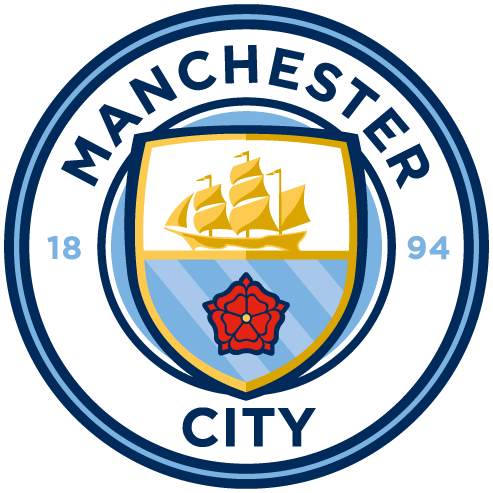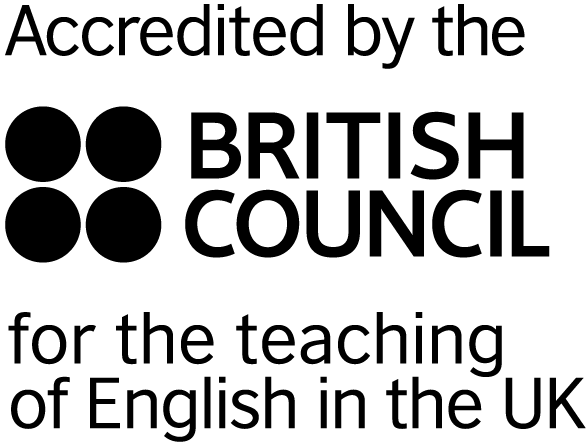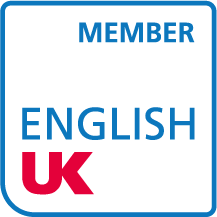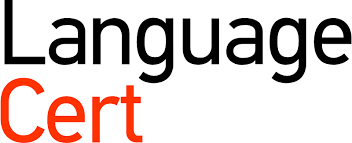One of the many advantages of studying English in the UK (or at a place with English speakers) is that you will get a real idea of how British people really communicate.
Slang makes up a large part of the vocabulary and is different across the country. If you’re studying English in the UK this year, then check out our guide to British slang before you arrive….
20 Common British Slang Words
1. Bloke (noun)
A common way of saying ‘man’. You might also hear ‘geezer’, ‘guy’, ‘dude’, ‘fella’, ‘chap’, or ‘lad’.
E.g. “That bloke over there has a nice hat.”
2. Loo (noun)
This is probably the British slang word you’ll hear the most if you come to the UK, this is because it’s the polite word we use to say we’re going to the toilet without saying the word “toilet”.
E.g. “Can we stop at a cafe? I need to go to the loo.”
3. Dodgy (adj)
Dodgy is an incredibly useful word that British people use to describe anything we’re a bit concerned about. It can be used to mean anything that’s low-quality, potentially dangerous or unreliable.
“E.g. “I wouldn’t go to that pub. It can get a bit dodgy late at night.”
4. Proper (adj)
Proper is a difficult word to define, mainly because British people use it to describe so many different things. Doing things ‘properly’ means to do them correctly or in the right way. In the North of England, ‘proper’ can also be used for emphasis in the same way as the word ‘very’.
E.g. “A proper cup of tea needs milk and two sugars.” “That’s a proper good cup of tea.”
5. Knackered (adj)
Simply put, knackered means really, really tired. The term used to describe the person who cleared dead animals away in the slaughterhouse, but is now used to say you’re exhausted. Just be a bit careful when using this one, some people consider this word to be impolite.
E.g. “I can’t come to the pub, sorry. I’m absolutely knackered.”
6. Quid (noun)
If you’ve ever been at the cashier of a British shop and heard the word ‘quid,’ then you know how confusing it can be. But, don’t worry, a ‘quid’ is just a slang word for ‘pound.’
E.g. “Can you lend me a quid for the parking machine?”
7. Skint (noun)
Still on the theme of money, ‘skint’ means that you don’t have any. It means the same as ‘broke’ which is used more commonly in American English.
E.g. “Sorry I can’t come out for your birthday. I’m not getting paid until’ next week and I’m skint.”
8. To Skive (verb) Skiver (noun)
If you’re pretending to be sick so that you can’t go to work, you’re ‘skiving.’
E.g. “Jeremy is such a skiver. He always takes the day off work.”
9. Snog (noun) To snog (verb)
So ‘to snog’ is to give someone a kiss. Specifically, the kind of kiss that is not very romantic.
E.g. “Did you hear that Lisa snogged Pete at the Christmas party?”
10. Cheers (exclamation)
So you might know the word ‘cheers’ as the word you use to toast your drink in English. But, as the British like to be different, we also use it for something else. We use ‘cheers’ to mean thank you and often use pretty it sarcastically.
E.g. “Do you want to help me clean the car?”
“Nah I’m good, cheers”
11. Naff (adj)
‘Naff’ is a word with an interesting history. Back in the 1960s, it was illegal to be gay in the UK and so gay men began to use a kind of code language or slang that was a mix of Italian, Romany and rhyming slang. ‘Naff’ was one of these words that actually meant someone was heterosexual. Now, the word ‘naff’ is used to mean that something is lacking in style or good taste.
E.g. “I was going to buy you the pink one, but I thought it looked a bit naff.”
12. To sack off (phrasal verb)
‘To sack off’ is to avoid doing something or to give up doing something – normally something that you didn’t want to do in the first place.
E.g. “Think I’m going to sack off work drinks later. I’m way too tired.”
13. Banter (noun)
Banter is a word used to mean joking or teasing that is meant to be friendly, but often isn’t.
E.g. “Don’t get offended. It’s just a bit of banter.”
14. Gutted (adj)
Extremely disappointed or upset.
E.g. “I was gutted when she broke up with me.”
15. Pissed (adj)
Now in the United States, pissed means angry. In the UK, pissed means drunk, and ‘pissed off’ is rude, and means angry. Confusing, we know.
E.g. “I was so pissed off when I saw how pissed she got at the party.”
16. Par (noun) To par off (phrasal verb)
A “par” is an act of dismissal or disrespect.
E.g. “Did you see how rude that guy was to me? What a par…”
17. Melt (noun)
A slang word used in London youth culture for years that was made famous by the reality TV show ‘Love Island,’ a ‘melt’ is someone who is a wimp or a coward.
E.g. “Just go and ask them out! Stop being such a melt.”
18. Cheeky (adj)
‘Cheeky’ has long been used in the UK to describe something light-hearted but a little rude or risqué. However, it is now used to describe any activity that is a little bit naughty but nice.
E.g. “Do you fancy a cheeky pint after work?”
19. To mug off (phrasal verb)
To ‘mug someone off’ is to take advantage of someone or make a fool out of them.
E.g. “That guy at the football kept laughing at me for wearing an Arsenal shirt. I told him to stop mugging me off.”
20. Mate (noun)
‘Mate’ is British slang for a friend. But, like a lot of British slang, mate is a word that is used as much sarcastically as it is sincerely. You’re just as likely to call someone ‘mate’ when they’re your friend as when they’re annoying you.
E.g. “Stop mugging me off, mate.”
Want to learn to speak like a true Brit? Check out our online English language courses and find classes with native speakers.












